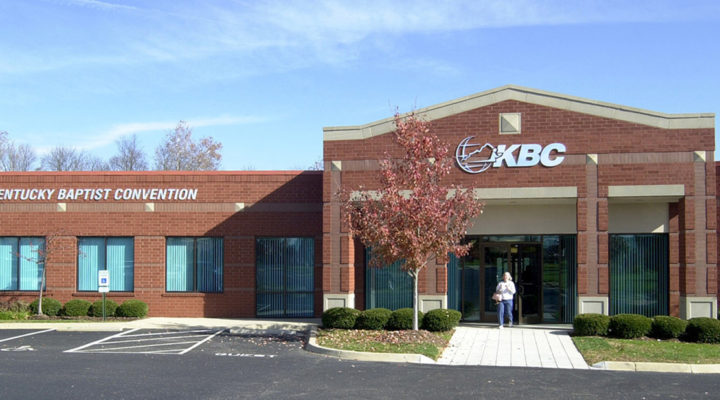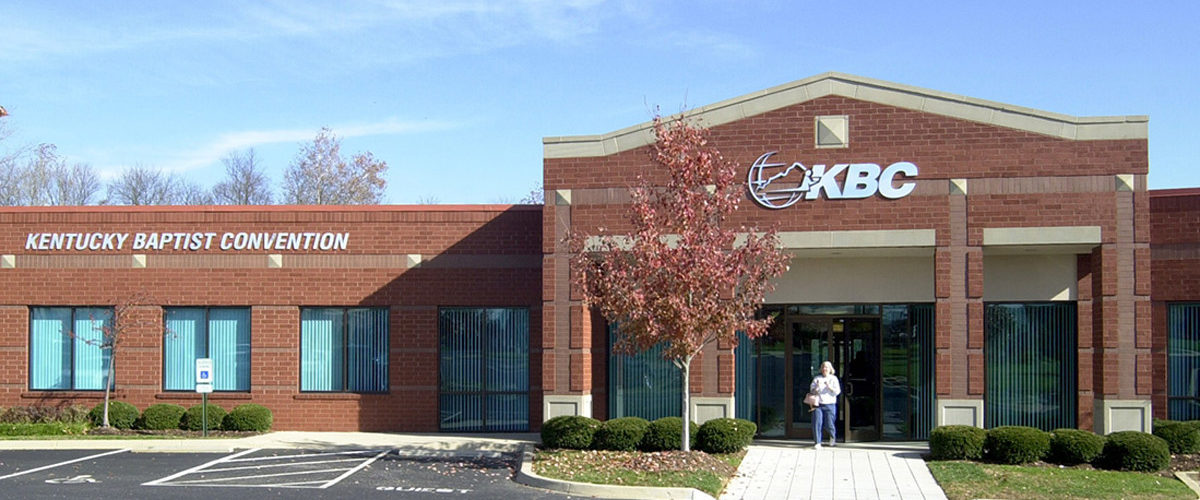A Southern Baptist state convention is considering kicking out cooperating churches that are also aligned with the Cooperative Baptist Fellowship.
Messengers to the Kentucky Baptist Convention voted Nov. 14 to authorize a standing committee to monitor moral and theological positions of the 1,800-church Fellowship and determine whether CBF congregations should be allowed to remain in good standing with the statewide affiliate of the Southern Baptist Convention.
Should the state body say “no,” according to Kentucky Today, a news and commentary website published by the state convention’s communications office, “in effect, churches would have to choose between CBF and KBC.”
Ed Admundson, pastor at High Street Baptist Church in Somerset, Ky., said he suggested the study after reading news reports about an ongoing discussion in CBF life over the pros and cons of dropping a 17-year-old policy against hiring gays.
“We’ve all sinned and welcome every kind of sinner into our churches,” Admundson said. “In fact, we love them and want them to come. But the issue here is redefining what the Bible calls sin to say that it isn’t.”
The Cooperative Baptist Fellowship was formed in 1991 by moderates being denied representation on Southern Baptist Convention boards and committees during a period of debate over doctrine and politics often known as the “conservative resurgence.”
At first disenfranchised moderates intended the group as primarily a channel for churches to designate funds toward certain SBC entities, like mission boards, and away from others, including seminaries and the agency known today as the Ethics and Religious Liberty Commission.
The CBF began appointing missionaries in 1992, after the SBC Foreign (now International) Mission Board, defunded a seminary in Europe that some trustees viewed as too liberal. Later in the year former Foreign Mission Board President Keith Parks was elected the first CBF Global Missions coordinator, moving the fledgling mission program to center stage.
After the Southern Baptist Convention directed agencies to refuse funds channeled through CBF in 1994, the Fellowship shifted attention to supporting new ventures, including partnerships with independent ministries formed to continue areas of work neglected or compromised by the new leadership of the SBC.
In those days, however, the hard feelings created by the SBC holy war in most cases hadn’t yet trickled down to the state level, and many CBF churches continued to feel at home with SBC-aligned yet autonomous Baptist state conventions for various reasons.
As SBC tensions began to hit closer to home, some moderates stayed engaged because of their affinity for colleges and other beloved institutions, typically with some employees attending CBF churches.
Those relationships are now being tested by controversies involving matters such as LGBT inclusion and women in ministry. This week the Tennessee Baptist Convention kicked out a historic church with close ties to one of its colleges for calling a woman as senior pastor.
At the national level, meanwhile, CBF leaders are trying to navigate some of those same issues through an “illumination project” initially reviewing the organization’s own internal policy against hiring staff or missionaries who are openly gay with a longer-term goal of developing a model to be duplicated by churches to talk openly about potentially divisive topics without splitting.
According to Kentucky Today, 45 of the 51 Kentucky churches listed on the CBF website are affiliated with the Kentucky Baptist Convention, but just 31 have contributed financially in recent years.
Chris Sanders, interim executive coordinator of CBF Kentucky, declined to comment on the state convention study.
Related opinion:



